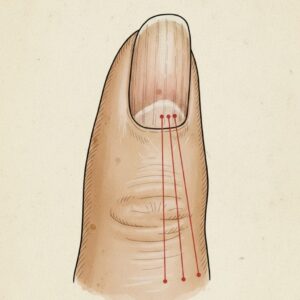Ovarian malignant growth, which is also called the “quiet executioner,” is known for having mild side effects that are easy to mistake for less serious health issues.
Even so, early detection is very important for treating and seeing ovarian cancer.
This article aims to give you information about eight early warning signs of ovarian cancer that every woman should be aware of.
If you know what you’re doing, you can take steps toward early discovery and get clinical advice when you need it.
1. Stomach gas
Bloating is something that many women could brush off as a normal and harmless side effect, usually linked to their periods or the way they eat.
Still, it’s important to tell the difference between normal swelling and persistent, odd swelling that could be a sign of a more serious health problem, like ovarian disease.
Even though bloating is a normal problem that doesn’t go away when your period ends or when you change what you eat, it should be seen as a likely early warning sign.
When someone has ovarian disease, they may experience a certain kind of bulging that is stable and can cause their middle to get wider.
This isn’t a temporary problem caused by eating too much or the short bulge that women experience during their periods; a steady growth could mean that there is a growth or liquid collection, which is usually caused by the disease’s effect on the ovaries and surrounding tissues.
Normal bloating goes away on its own or can be made better with over-the-counter medicines and changes to your diet. But the swelling caused by ovarian cancer doesn’t respond to these methods.
This difference is important for women to understand because noticing and following up on this early warning sign can be a big step toward finding and treating ovarian cancer early.
It shows how important it is to pay attention to your body and see a doctor when changes go beyond what you might expect. This way, you can make sure that any potential health problems are taken care of before they happen.
2. Pain in the low back or stomach
The feeling of pain in the pelvic or stomach area is another sign that you shouldn’t ignore. This distress can be sharp or dull, and it can happen all the time or sometimes.
It’s important to pay attention to any pelvic or stomach pain that isn’t caused by your period or other clear reasons.
3. Having trouble eating or getting full quickly
If you find that your cravings have gone down or that you’re full faster than you thought, it’s not a good idea to ignore these changes.
This condition, which is known in medicine as “early satiety,” can be a subtle but important sign that you might have ovarian disease.
It’s normal to feel less hungry or have changing cravings from time to time, but an example of early satiety is worth thinking about.
This side effect doesn’t go away after a big meal like some other side effects do. It keeps happening even when you don’t eat anything. It’s a sign that your body might be talking about a basic problem, which could be linked to ovarian disease.
Seeing and keeping track of these changes in your eating habits can be very important for early detection and treatment. It is always better to be proactive and talk to a medical care provider to avoid or deal with problems before they happen.
4. Effects on the urinary tract
Urinating more often or more urgently without an infection can also be an early sign of ovarian cancer. It’s important to talk to a medical care provider if you notice a change in how often you go to the bathroom that you can’t explain.
5. Tiredness
Being too tired that doesn’t get better with rest can be a sign of many health problems, including ovarian cancer. Weakness by itself doesn’t prove anything, but when combined with the other signs on this list, it’s something that should be looked into further.
6. Back ache
When lower back pain can’t be explained by other health problems and doesn’t get better with standard treatments, it may be a sign of ovarian cancer. Usually, this kind of pain is found in the lower back area, and it could mean that the cancerous growth has spread or moved.
Unlike normal back pain caused by things like heavy lifting, acting problems, or specific injuries, this constant lower back pain from ovarian cancer doesn’t go away with regular painkillers.
This side effect should be taken into account because it could be a subtle sign that the cancerous growth has spread beyond the ovaries. This means that a thorough clinical evaluation is needed to find the hidden cause and provide the right treatment.
7. Changes in your period
If your menstrual cycle changes in any way, including having periods that are too heavy or not at all, it could be a sign that you have ovarian cancer.
These changes need to be looked at closely because ovarian cancer can change the balance of your hormones and throw off your regular menstrual cycles.
Women should keep an eye out for and write down any big changes from their normal cycle. These could be changes in the amount of flow, the length of the cycle, or symptoms like pain or spotting that doesn’t seem normal.
It’s important to have open conversations with your healthcare provider about these changes. A thorough exam can help you tell the difference between changes in your cycle that are normal and signs of a more serious problem.
By carefully documenting your menstrual health and taking the initiative to see a doctor, you can make a huge difference in finding and treating ovarian cancer early.
Finding ovarian cancer early with this method is not only helpful, but it also tells you a lot about your overall reproductive health.
8. Pain While Making Love
Ovarian cancerous growth can cause pain during sexual activity, which is called dyspareunia in medicine.
Lots of things can cause this kind of irritation, but it’s important not to ignore it, especially if it happens near other side effects that were talked about.
In conclusion
Seeing the early signs of ovarian disease can make the chances of getting better and living longer much higher.
If you consistently experience any of these side effects, you should talk to a medical professional to get more information.
Remember that getting educated and taking care of your own health can make a big difference in finding and treating ovarian disease early.
Click below to watch more…





